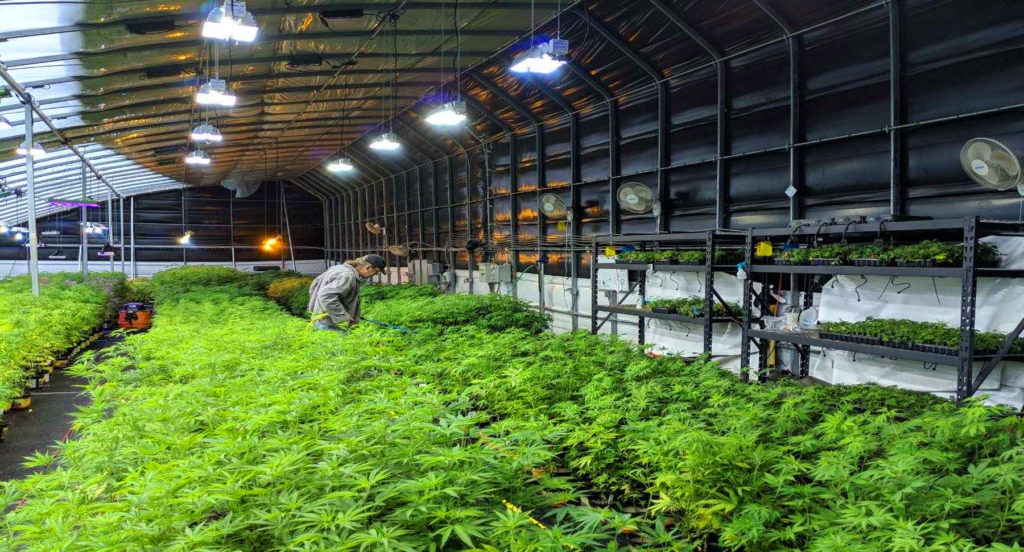BY MIKEL WEISSER
Less than a month before AZ’s hemp program is set to start, AZDA’s industrial hemp program supposed last monthly meeting ended with multiple critical issues unresolved. Propagative materials such as clones and tissue culture techniques were threatened. Hemp strain certifications were challenged.
AND, the final language is still not ready for the Secretary of State’s office to review. So, the most important thing to take from the meeting is that none of the regulations are finalized yet, but by now we’re getting a good idea of what they should look like.
Act Now!
AZDA Industrial Hemp Program manager Brian McGrew explained the early application process, which was announced earlier in the month. McGrew encouraged potential hemp farmers to act now, especially if they haven’t completed their DPS fingerprint clearance process. Applications received before May 17 will be given first consideration at a pre-application screening starting May 31st. “We can’t guarantee that applications received later will be able to be processed as quickly,” McGrew cautioned.
Associate Director Jack Peterson was present for the meeting, which devoted a good deal of time and energy to the topic of seeds. Among the seed highlights: Seed sellers will need to be licensed by the state and seeds for sale will have to meet certain labeling requirements.
Propagative Materials
But seeds are only one way to grow a hemp crop. Much like the medical cannabis industry plants can be grown from clones or even tissue culture. At least in states that support the idea. One committee member used the meeting to sound his concerns about “propagative materials.”
Taking his challenge against propagative materials to its logical end, committee member Michael Stoltz, called for all cloning and tissue culture techniques to be struck from the state’s program. He even presented language he had crated which excised the words throughout the text. The rest of the committee disagreed en masse.
Citing a concern for farmers getting scammed, Stoltz asserted that there are no credible ways to be sure clones and tissue cultures are truly certifiably hemp. But, as committee cochair Paco Allerton hastened to point out, the same can be said about any seed.
Noted cannabis scientist, Dr Hope Jones was on hand and pointed out that until we can have verifiable DNA tests there is no way to truly tell whether the plant a seed produces will be “hot” or not. It may take a couple seasons till DNA profiles could be built enough to ensure seed purity.
Jones’ Tempe research lab is hoping to lead the new field of hemp science and eager to land a research license once they’re issued. For-profit researchers like Jones may have to pay for their licenses but will get to develop their own proprietary materials. Non-profit researchers, like those attached to universities, will be required to share their findings with the public. That part of the language was supposedly finalized.
Committee member Colleen Lanier led a discussion about the importance of hacking through various potential local zoning issues that could possibly hamstring the program, “Having to fight local city and county zoning codes and ordinances could limit hemp too much.” To protect against such problems, McGrew pledged to review local ordinances around the state and provide an update at the next meeting.
Setbacks, the Good Kind
One of MMJ’s gravest concerns finally came to the forefront this meeting: setbacks. Setbacks are a proscribed distance hemp fields would have to be from medical marijuana cultivation operations. During pollination season, hemp pollen could travel for miles and ruin millions of dollars of medical marijuana “sinsemilla” one windy afternoon. Though the issue had been discussed at hemp meetings before this was the first time it rose to the committee’s attention.
In earlier meetings farmers asserted they would use their farmlands however they saw fit, setting up a potential conflict with the state’s cannabis industry. This round, ten miles was proposed. Hemp crops will require GPS location and the farmers will have to interact with the MMJ cultivation company in the long run to establish proper distances.
Not Getting Burned
Another huge key question up for debate is the question of remediating hot crops. Turns out, the remediation section is still far from complete. With a tolerance level of only .3% THC allowed in any hemp plant and the possibility of one bad sample jeopardizing a whole field, identifying the acceptable remediation approaches is literally the million-dollar question.
The difference between the intended hemp end-product can be considerable. Hemp harvested for fiber may be worth as little and ten thousand dollars an acre, whereas hemp harvested for CBD could yield as much as $250,000.00 per acre. Of course, hemp destroyed for having too much THC is just a loss.
Committeeman JL Echeverria noted that if a hemp crop is tested during its flowering stage and shows to be hot, the crop cannot be legally transported and needs to be harvested immediately or it will probably become even hotter the longer it flowers.
Currently the only defined remediation approved is to burn the crop in place. According to Dr. Hope Jones, one approach to remediate the biomass of the harvest is to dose the buds of the plant with alcohol, which would destroy the trichomes but not affect fibers. At a previous meeting a suggestion was made that hot crops could be remediated by using the harvest for hemp fiber. However, there is still no US hemp textile plant processing crops of any kind, so that approach is in question.
In the end the need for a follow up meeting was clear, though a date hasn’t been suggested yet. You can keep track of the next meeting by contacting the Arizona Dept. of Agriculture’s Hemp Program and request a draft copy the proposed rules. Visit the Dept of Ag Industrial Hemp Program webpage here.
Remember the early application window ends May 17.
—Mikel Weisser is the editor and chief staff writer for Arizona Cannabis Monthly and state director of AZ-NORML

